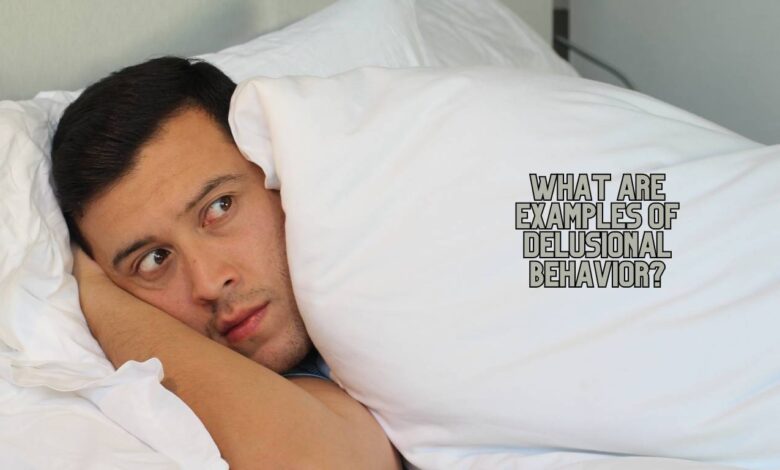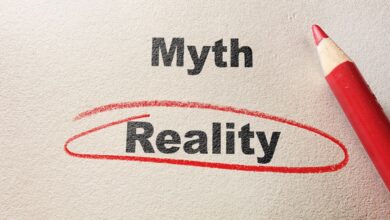What Are Examples of Delusional Behavior? You Need to Know

Delusional behavior is a mental condition. People who have it believe things that aren’t true, and it’s tough to change their minds even when there’s proof they’re wrong. These false beliefs are false and can affect how a person thinks, feels, and acts. Mental health pros need to know about delusions. It helps them diagnose and treat people better and improve their well-being.
1: Paranoid Delusions
People with paranoid delusions often believe that others are out to get them. This behavior is abnormal and may cause intense mistrust and suspicion of others. People with paranoia may feel like they are in danger or being hurt by others, even without proof.
Believing That One Is Being Followed or Watched
Some people with paranoia might think they’re always being watched or followed. People who have this belief may think that someone is watching them. It could be people they don’t know, the government, or things they’ve made up. They might change their routines, take many precautions and keep secrets to avoid danger.
Thinking That Others Are Plotting Against Them
People with paranoia often think that others are plotting against them. These individuals may believe that friends, family members, or coworkers conspire to harm or undermine them. Sometimes, they might think a social action or movement is a sign of something negative. They may get defensive or pick fights over small things.
Feeling Targeted by Surveillance or Government Agencies
People who are paranoid may think they are being watched by the government or other groups. People may think they’re being watched all the time and controlled by strong forces. Delusions can make you more anxious and less social and change how you see things.
Paranoid delusions can significantly impact a person’s daily life, relationships, and well-being. They can cause distress, fear, and a sense of isolation. Getting help from a professional is important to diagnose and treat delusions well.
Knowing various false beliefs, like paranoid ones, is crucial for mental health experts. It helps them give real help and support to patients. Clinicians can make a treatment plan for someone’s specific delusions. They may use medication, therapy, and social support to help.
2: Grandiose Delusions
People with grandiose delusions think very highly of themselves. They believe they are better than others and have an exaggerated sense of importance. People with grandiose delusions can believe they are really good at something or special, even if there isn’t proof or a good reason for it. Delusions can affect how people think, feel, and act differently.
Illustrative Instances of Grandiose Delusional Behavior
People with grandiose delusions may think they have amazing abilities or powers. This is a common behavior. Some people with this problem may believe they have superpowers, like being very strong or smart or having supernatural abilities that make them different. Some people say they’re good at things that regular people can’t do. They might do things to show off how special they think they are.
Fantasizing About Being a Famous or Influential Figure
Some people with grandiose delusions always dream of being famous or important. People with this belief think they will become famous or influential in society, like celebrities or politicians. Some people dream of success, money, and fame in the future, even if they don’t have the skills, talents, or chances to achieve it. Some people may believe they are meant to be famous, making them think they deserve special treatment. They may spend much time trying to become well-known and getting others to praise them.

Thinking That One Is Chosen or Destined for Greatness
Some individuals with grandiose delusions believe they are chosen or destined for greatness. Some people may think they are special or divine with a unique purpose in life. Some people might think they are very important in a spiritual or cosmic way. They believe that what they do or decide can affect many things. This idea can make people ignore the rules, follow a group like a cult, and think they’re better than others because of their special fate.
Grandiose delusions can significantly impact an individual’s relationships, functioning, and overall well-being. People with delusions often think too highly of themselves and have unrealistic expectations. This can make it hard for them to get along with others, feel alone, and struggle in different parts of life. Professional intervention and support are crucial to address and managing grandiose delusions effectively.
Mental health experts need to know about grandiose delusions. It’s important. When doctors identify and evaluate these false beliefs, they can make a plan to help. Treatment may include talking to a therapist, taking medicine, and getting information to feel better. This can help people understand themselves better and set achievable goals.
3: Somatic Delusions
Somatic delusions are when someone has false beliefs about their body or health. Some people believe their body is sick and don’t believe it when doctors tell them they’re not. People with somatic delusions often misunderstand the way their body feels. This can make them worry too much about their health and upset them.
Notable Manifestations of Somatic Delusional Behavior
People with somatic delusional behavior may feel they have a serious illness even when doctors say they don’t. This is a common sign of the condition. Some people with this delusion think they have a serious illness like cancer or a rare disease. Even when many doctors say they are healthy, they still believe they are sick. This can cause you to see the doctor too much, get medical tests you don’t need, and feel very worried and upset.
Thinking That Parasites or Foreign Objects Reside Inside the Body
Another example of somatic delusions is the conviction that parasites or foreign objects are inside the body. Some people may feel like bugs or worms are inside their body parts, called delusion. Sometimes, even if doctors say they’re okay, some people might try to eliminate imaginary things inside them. This can make them hurt themselves or get surgery they don’t need.
Holding the Delusion That One’s Appearance Is Drastically Different or Disfigured
Some individuals with somatic delusions have a distorted perception of their appearance. Many people think their body or face looks very different or damaged. They might firmly believe this even when clear evidence shows that that is not the case. This wrong belief can upset you, stop you from going out, and even cause a problem called body dysmorphic disorder. It makes you think too much about the flaws you see in yourself.
Somatic delusions can really affect how someone lives. It can make you anxious, affect how you do things, and make it hard for you to have good relationships. Treatment for somatic delusions typically involves a combination of psychotherapy, medication, and psychoeducation to address the underlying beliefs, manage anxiety, and provide coping strategies.
Mental health pros need to know about somatic delusions to diagnose and treat them right. By addressing the underlying cognitive distortions and helping individuals challenge their false beliefs, clinicians can support individuals in developing a more realistic perception of their physical health and appearance.
4: Erotomanic Delusions
People with erotomanic delusions may think someone famous or out of reach is actually in love with them. This false belief is also known as De Clérambault’s syndrome. The person keeps believing something even if it’s proven wrong. They sometimes make up stories about it.
Noteworthy Examples of Erotomanic Delusional Behavior
Some people believe that famous people are in love with them. This is called erotomanic delusional behavior. The person having the delusion may think that popular people love them. They could believe this based on seeing them on TV or in person. People may act obsessively if they believe in a romantic relationship that doesn’t exist. This can include sending love letters, stalking, or trying to make contact repeatedly.
Higher Social Status Is Romantically Interested
Some people with delusions may think that someone in authority or a public figure likes them romantically. They may misinterpret friendly gestures, professional interactions, or benign attention as signs of affection, constructing an elaborate narrative around the perceived romantic relationship. People can keep believing something that is not true. This can cause them to act strangely and have problems in work or social situations.
Reciprocated Love Relationship That Does Not Exist
People with erotomanic delusions imagine being in love with someone who doesn’t feel the same way. Sometimes, people fantasize about spending time with someone they love. They imagine dates, cuddles, and a future with them. They keep believing in something even when it’s not true. This can make them unhappy and frustrated.
Conclusion:
To sum up, people have delusional behavior in different ways. It affects them in specific ways and can impact their lives. Paranoid delusions involve irrational beliefs of being watched, followed, or targeted by others. Grandiose delusions entail an inflated sense of self-importance and exceptional abilities or destinies. Somatic delusions revolve around false beliefs regarding physical health or appearance. People with erotomanic delusions believe that someone of a higher social status loves them. To help people better, mental health experts must know about delusional behaviors. Diagnosing and treating them is crucial so they can lead better lives.
FAQs:
Q1: Are delusions treatable?
Yes, delusions can be treated with therapy, medicine, and support groups. However, the treatment plan depends on the underlying causes and individual needs.
Q2: Can delusional behavior be a symptom of a mental disorder?
Yes, delusions are linked to mental conditions like schizophrenia, bipolar disorder, or major depression. They can also occur in other medical conditions or substance-induced states.
Q3: How can delusions impact individuals’ lives?
Delusions can affect your life by making you see things that aren’t real. This can cause problems with your friends and at school or work and may even put you and others in danger. They can also cause distress, anxiety, and isolation.
Q4: Can delusional behavior be managed without medication?
A: While medication can be beneficial in managing delusions, therapy, and psychosocial interventions play a crucial role in helping individuals understand and cope with their delusional beliefs. Interventions can help you gain insights, cope better, and perform better.
Q5: Is it possible to completely eliminate delusions?
It might not be possible to completely eliminate delusions, especially if they are part of a long-term mental condition. With the right help, people can control their delusions, lessen the effects, and have a better life.




